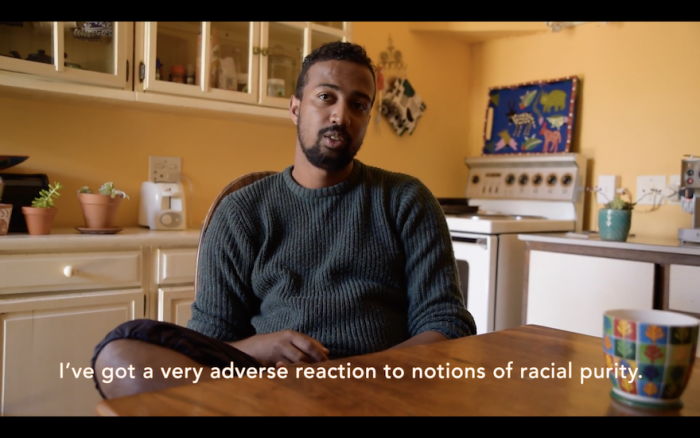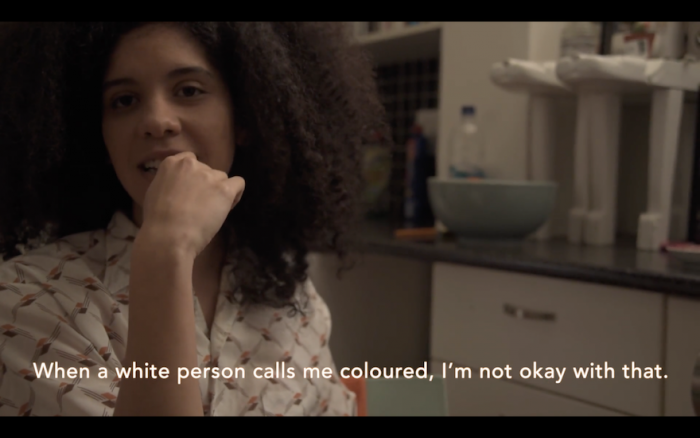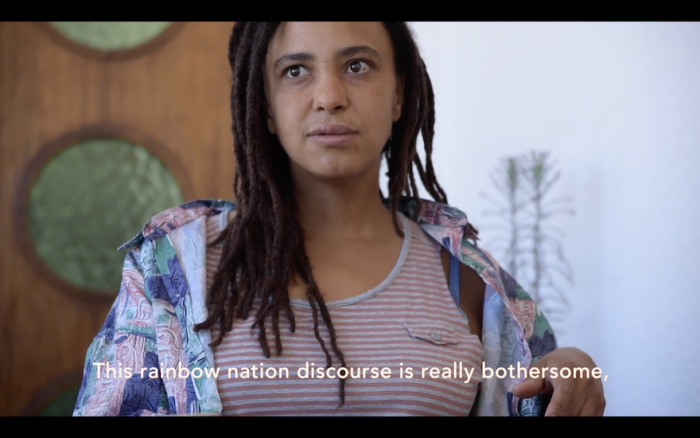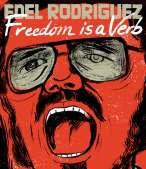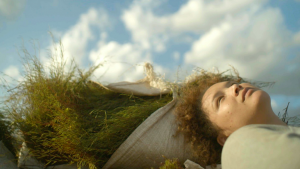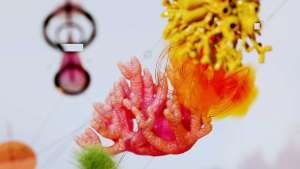There are no safe spaces, says South African multidisciplinary artist and filmmaker Zara Julius, but we can have brave spaces.
MIXED SPACE Trailer from Zara Julius on Vimeo.
The space Zara Julius created in collaboration with a number of decolonial thinkers was born from the idea that race in South Africa is not fixed. It doesn’t just exist as either black or white or even coloured. Instead, there is more to blackness and whiteness and colouredness within the intersections, the nuances of which are overlooked by the country’s flawed racial categorisations. We caught up with Julius before the release of Mixed Space, a dialogue-driven documentary that unpacks the way multiracial or mixed race people navigate their worlds.
How did it start?
Mixed Space is a project that I started a few years ago. It was initially conceived as a series of focus groups that I was hosting in my apartment when I was living in Cape Town. [I was] kind of just inviting three or four people at a time who all identified as first generation mixed race to kind of just have chats about our experiences – to create a sense of mirroring of our experiences and how we navigate even something like our families as an example.
It was also conceived after the Rhodes Must Fall movement occurred. It was kind of in between Rhodes Must Fall and Fees Must Fall. That was a time when a lot of us were trying to confront the whiteness within ourselves and also the whiteness within our families. How do we have conversations about decolonial ways of thinking when you have a white family member sitting at the dinner table, you know? A lot of us were feeling that kind of frustration. So it was to create a space for those kinds of conversations.
Who is it for?
It wasn’t just for people who were half white. There were people who are half Indian, half black, whatever. That’s how it started then it kind of ended up… basically the sessions were really successful and people were hungry for more. So then I started experimenting with photography within the project and adopted co-productive methodologies within that aspect: How can the person in front of the camera take control of the way they’re represented in an image or in a portrait, especially considering the fraught history of the representation of mixed race people across the board? Basically, from the beginning of the colonial age, there were mulatto concubines as an example. That’s the image we have of mixed race women.
I think that same issue applies to so-called coloured people in South Africa. Mixed race women and coloured women are sexualised in a very specific way.
How do you engage with the coloured classification when looking at issues in the mixed race community?
I’m all about people self-identifying. Obviously not in a Rachel Dolezal type of way. But I’m all about people of colour self-identifying in ways that they feel work for them. My mother is coloured from Durban but she’s always identified as black. For a large percentage of my life, I knew my mother to be a black woman. Then I moved to Cape Town and realised, oh wait, so my mum’s also coloured. I was still trying to figure out my own racial identity and my father would often refer to me as coloured and my sister as coloured but I have no access to that culture.
Coloured culture is completely nuanced. The term coloured as we all know is a fraught term because it was placed onto us by the Apartheid regime but to be coloured from Durban means a very specific thing on a cultural level. In the same way, to be coloured from different parts of the Western Cape, the Karoo, the Northern Cape means very specific things. I haven’t had access to any of those things. So when I talk about mixed race, I’m talking about first generation mixed race.
The idea of the project is to kind of show how flawed the racial categorisation in South Africa really is because, for example, there are people who are half coloured and half white in the project who identify as coloured. But in different instances, they have to check their privilege in different spaces as well. The term mixed race speaks to that.
Mixed Space will be screened for the first time in Cape Town, South Africa at the AVA Gallery, Media Room from 25 May 2017 to the 25 June 2017 and at the Keleketla! Library King Kong in Johannesburg on 6 July 2017. It will also be screened at I/Mages of Tomorrow 2017, Stuart Hall Building at Goldsmiths College in London from 2 to 4 June 2017.


